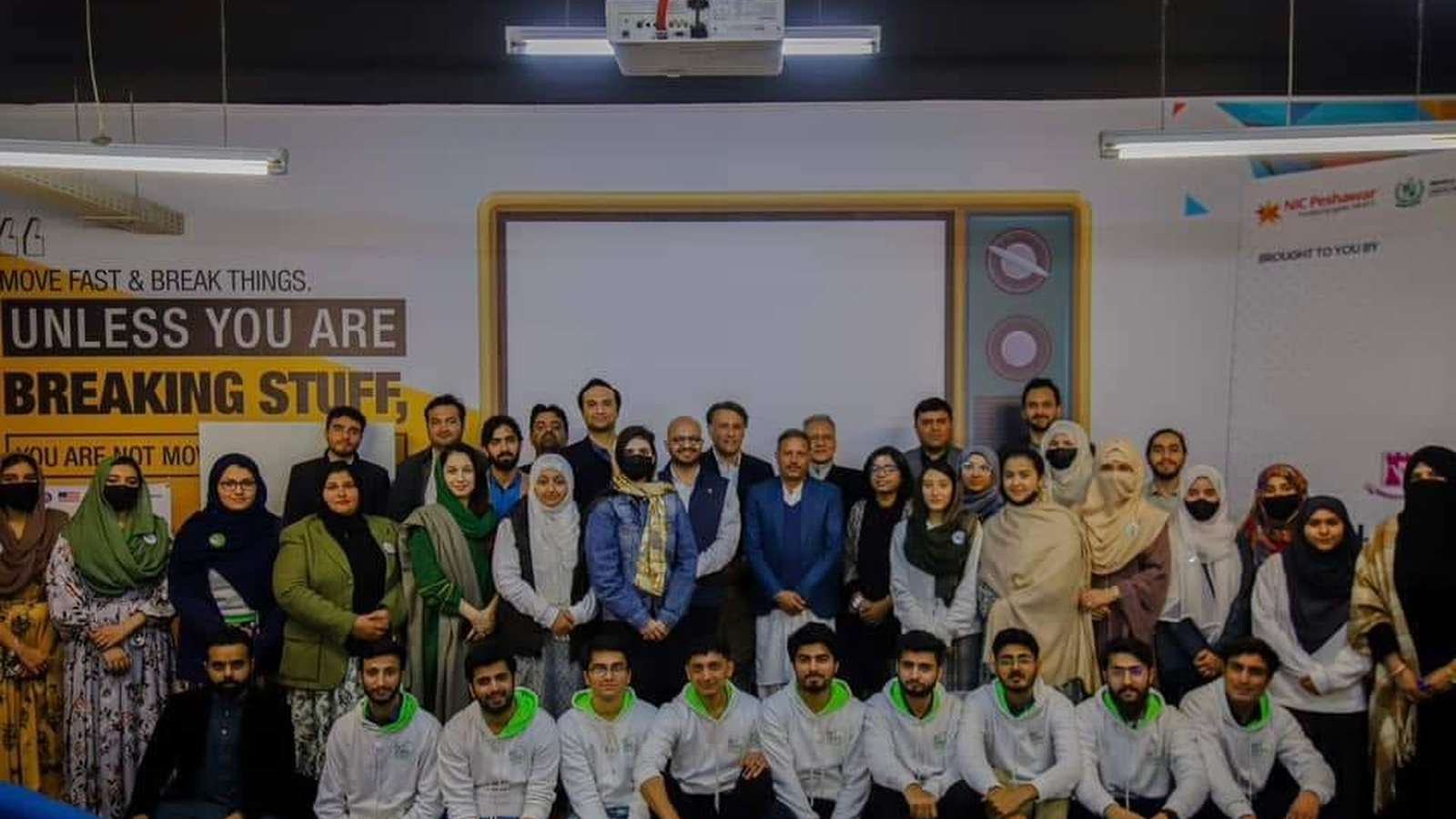
You could feel the energy of the room as soon as you walked in. It was the second round of a 3-day Tech Camp event arranged by National Incubation Center Peshawar (NIC) and curated by Code for Pakistan. The purpose of the events was to engage Pakistani youth in the climate action discussion through active problem-solving.
Four teams of students from seven different universities in Khyber Pakhtunkhwa (KP) gathered at NIC Peshawar to work on projects aiming to achieve net zero emissions. An interesting observation regarding gender disparity was that out of the twenty participants, twelve were women, representing a clear majority—a surprising occurrence for an event in KP, one of Pakistan's more conservative provinces.
However, that wasn't the only noteworthy aspect of this enthralling event. The teams exhibited a surprisingly diverse portfolio, which was reflected in the innovative ideas they later proposed. Psychology majors, chemical engineers, computer scientists, and many other academic backgrounds contributed to a strong set of ideas that would eventually receive funding from The Asia Foundation to further scale.
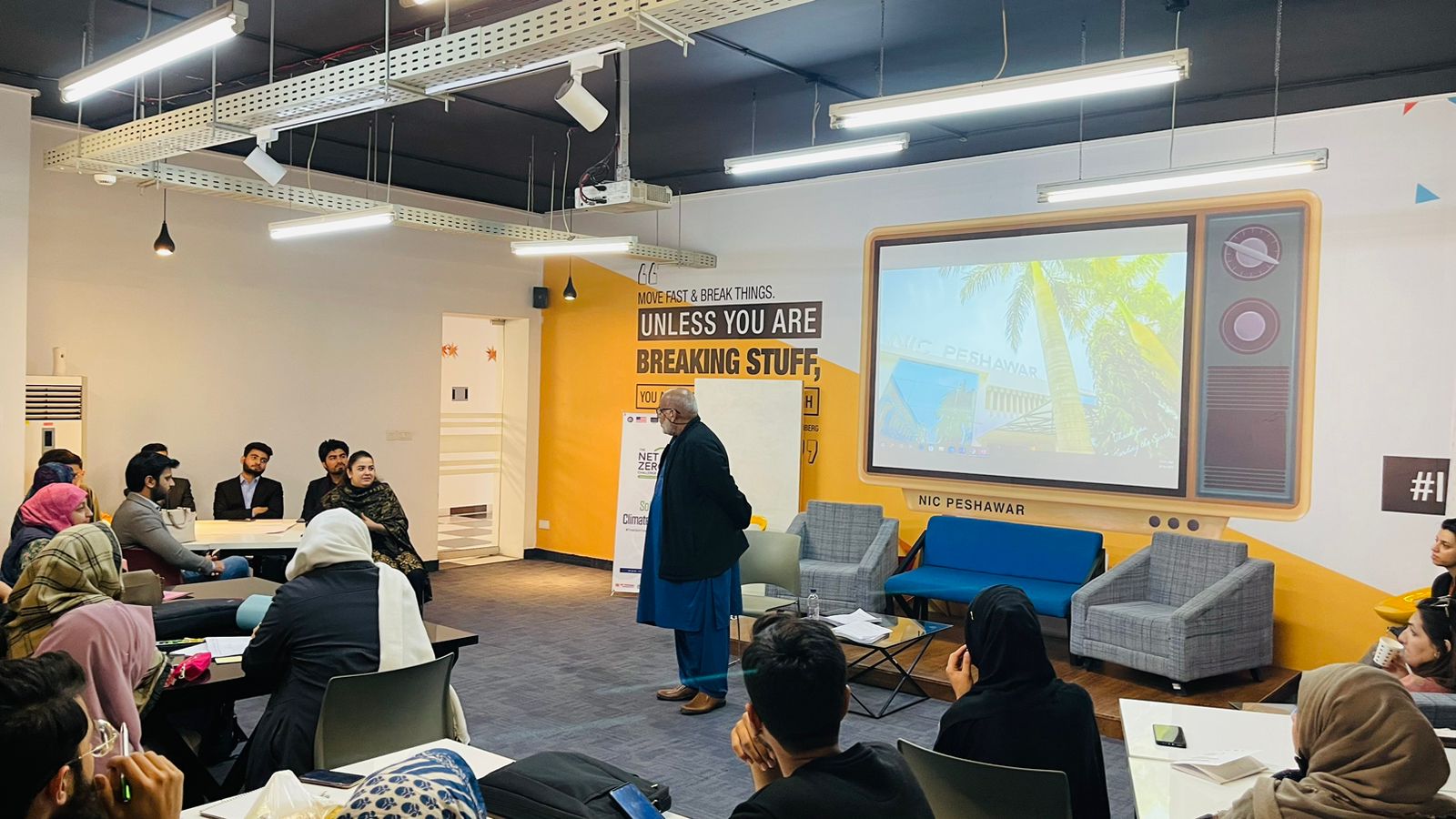
Doing the rounds of the tables, I was taken by one of the teams' ideas to design an Awareness Campaign because, as they said, "nothing can change unless people know that there is a problem, and what that problem is." This all-girls team was thinking at the grassroots level, aiming to bring the climate change discussion home and make it local. There were a few other creative ideations in the works, like the team developing a project on up-cycling of products.
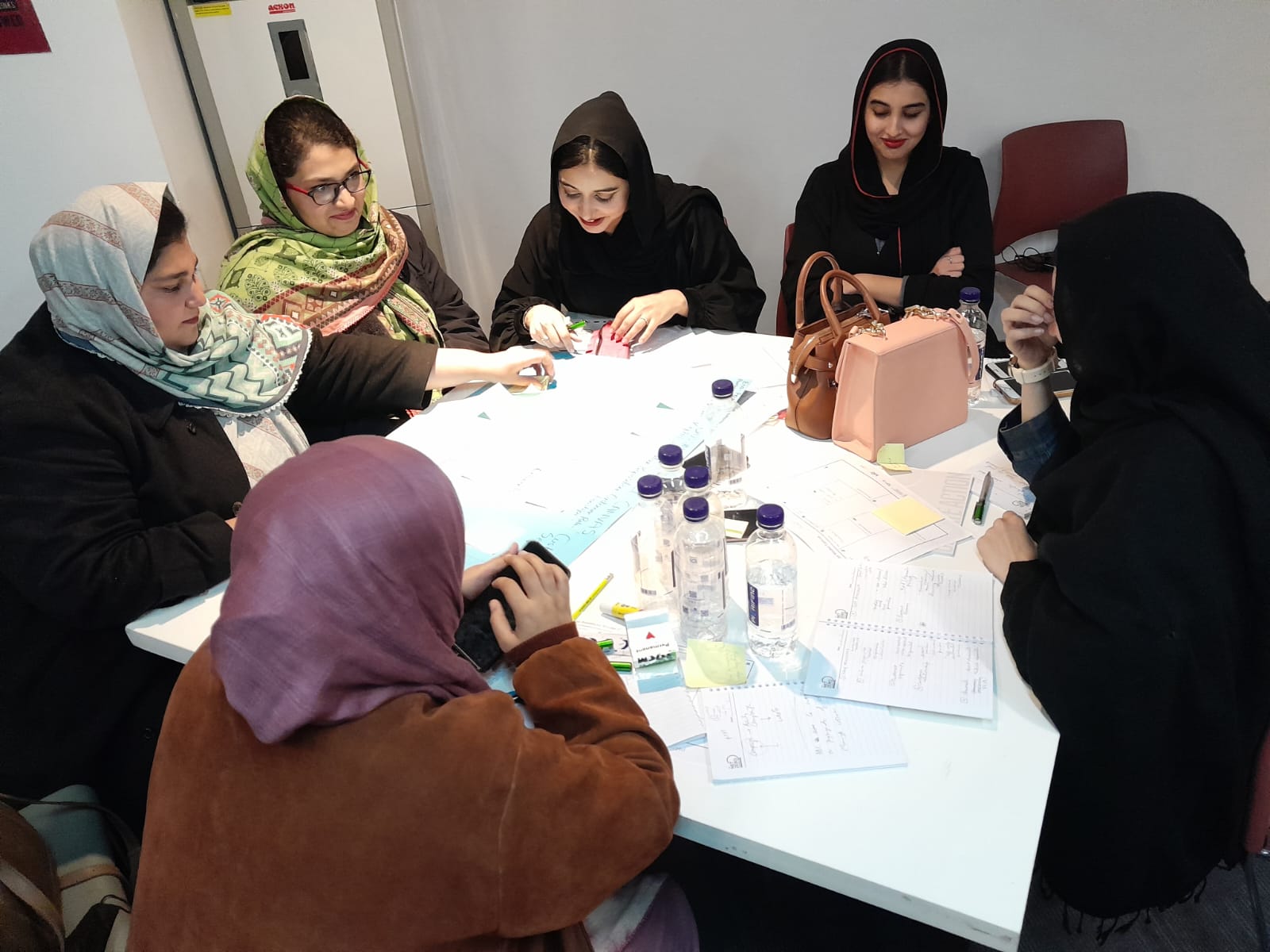
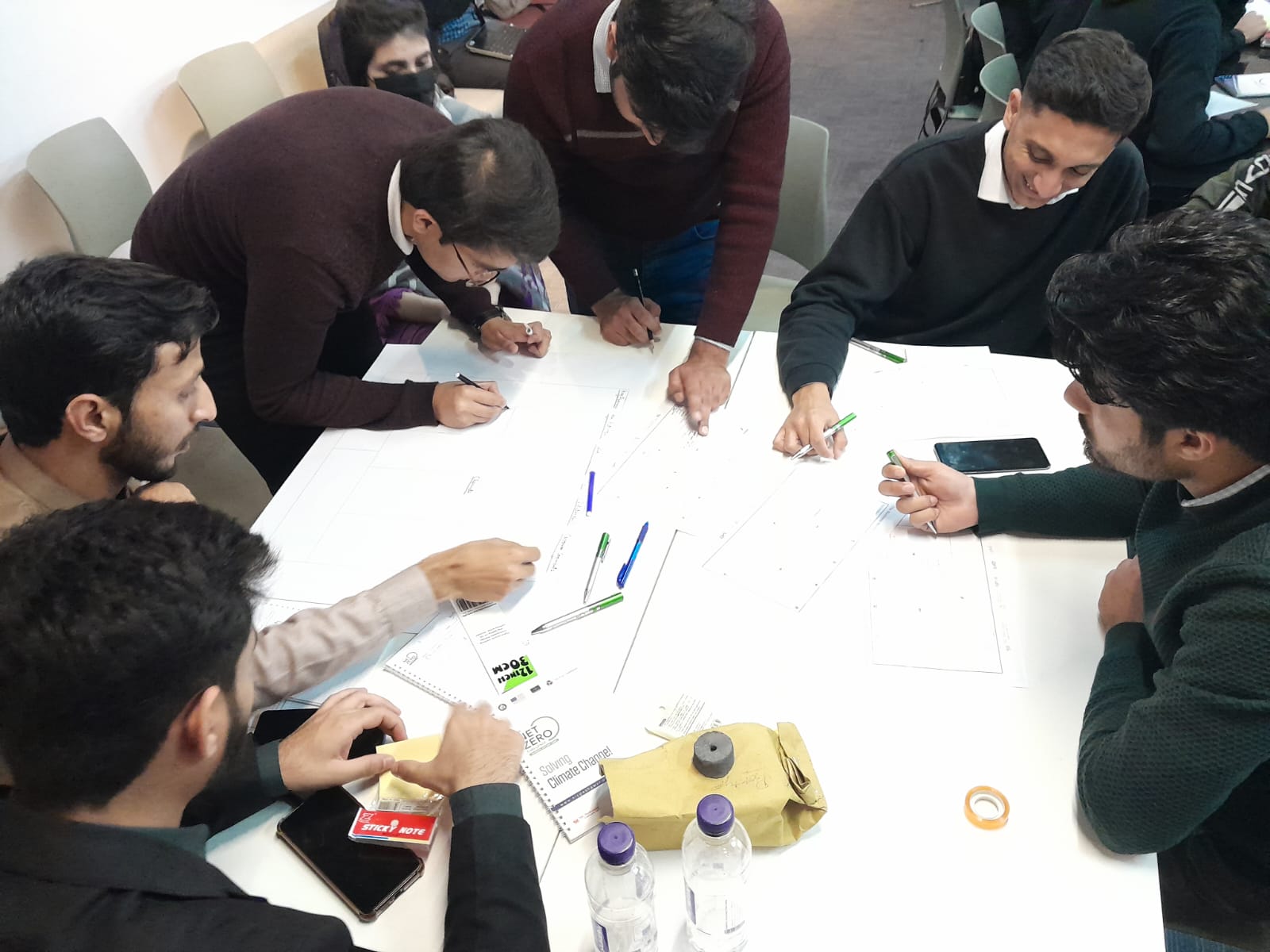
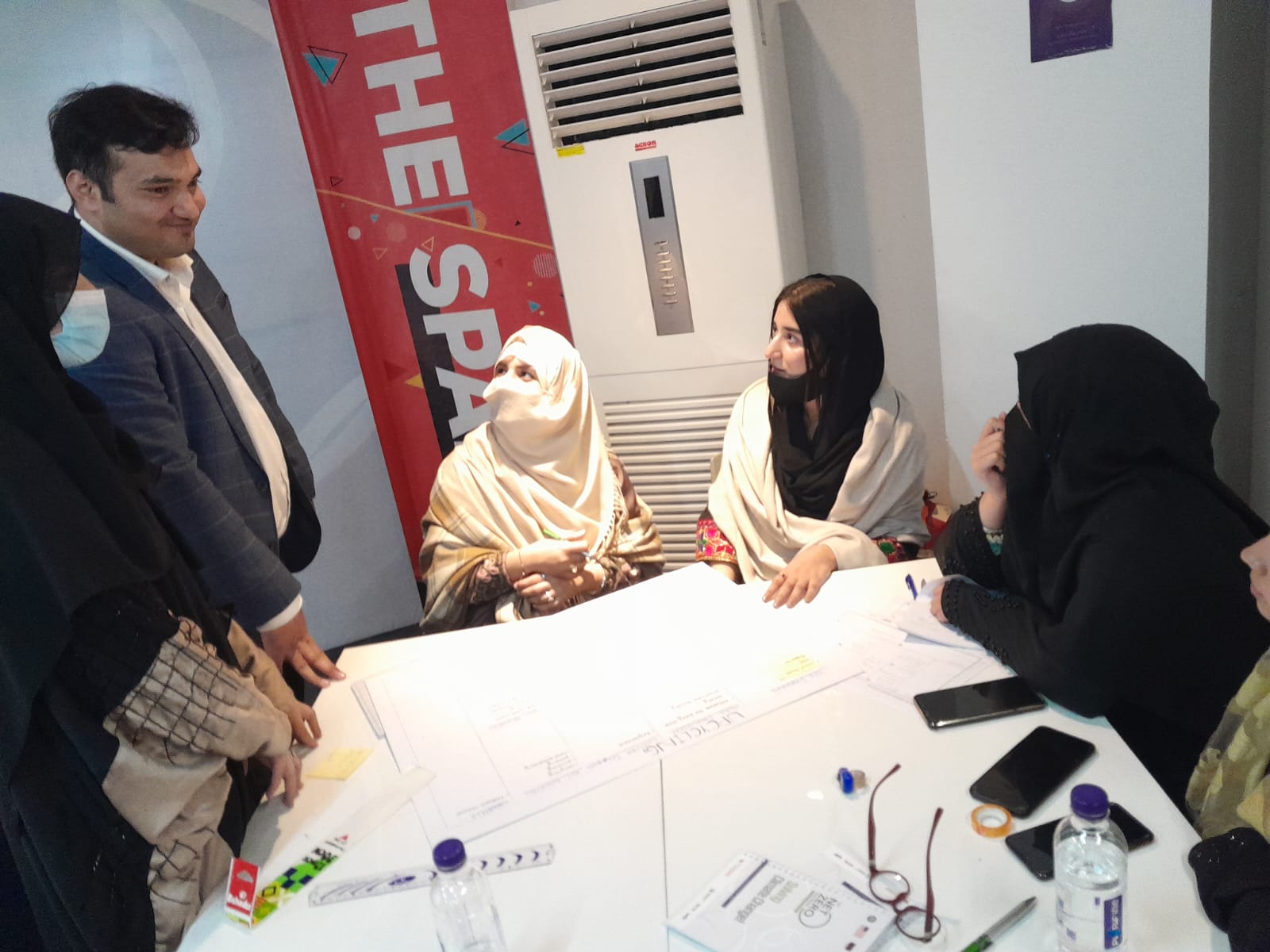
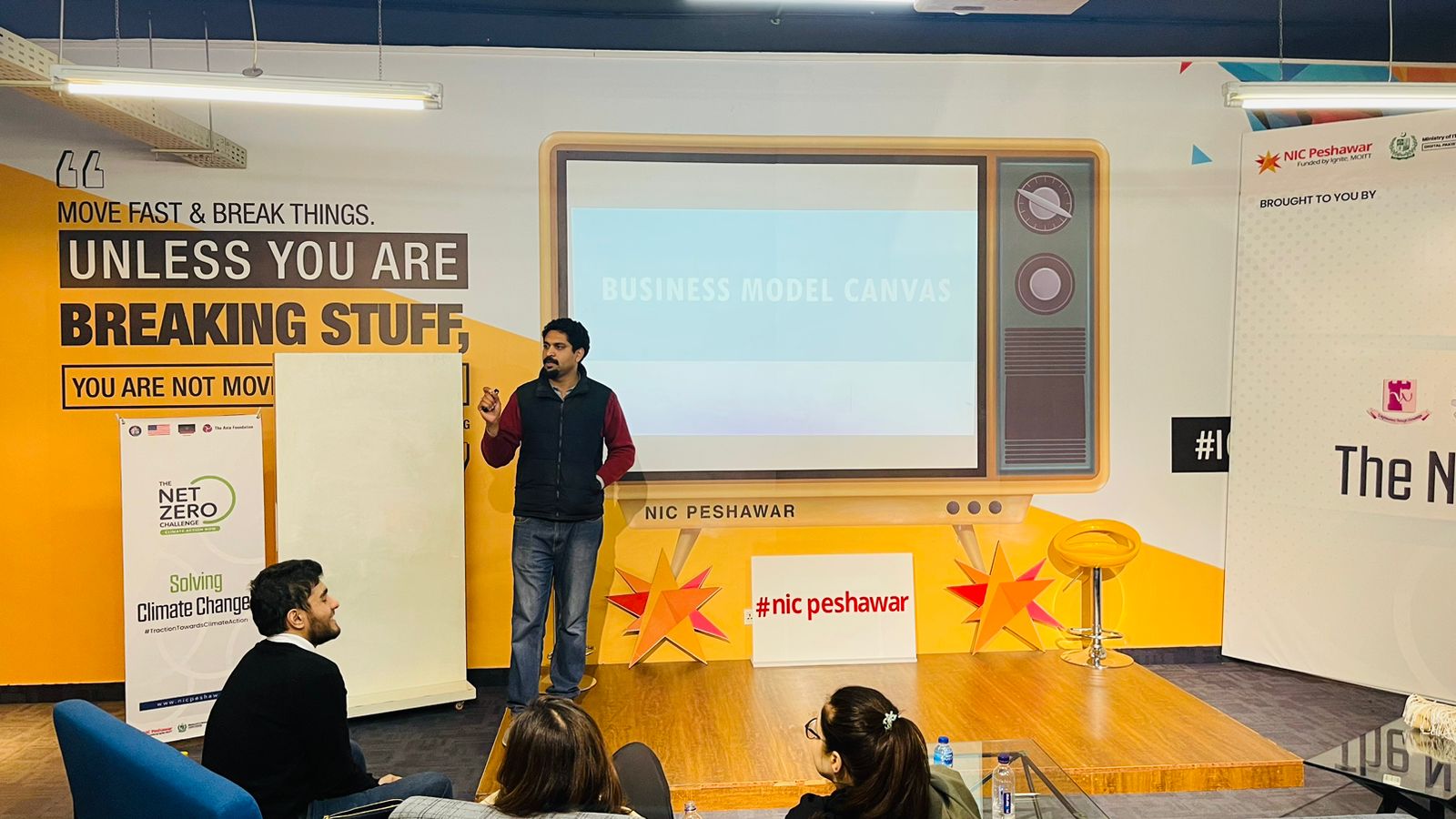
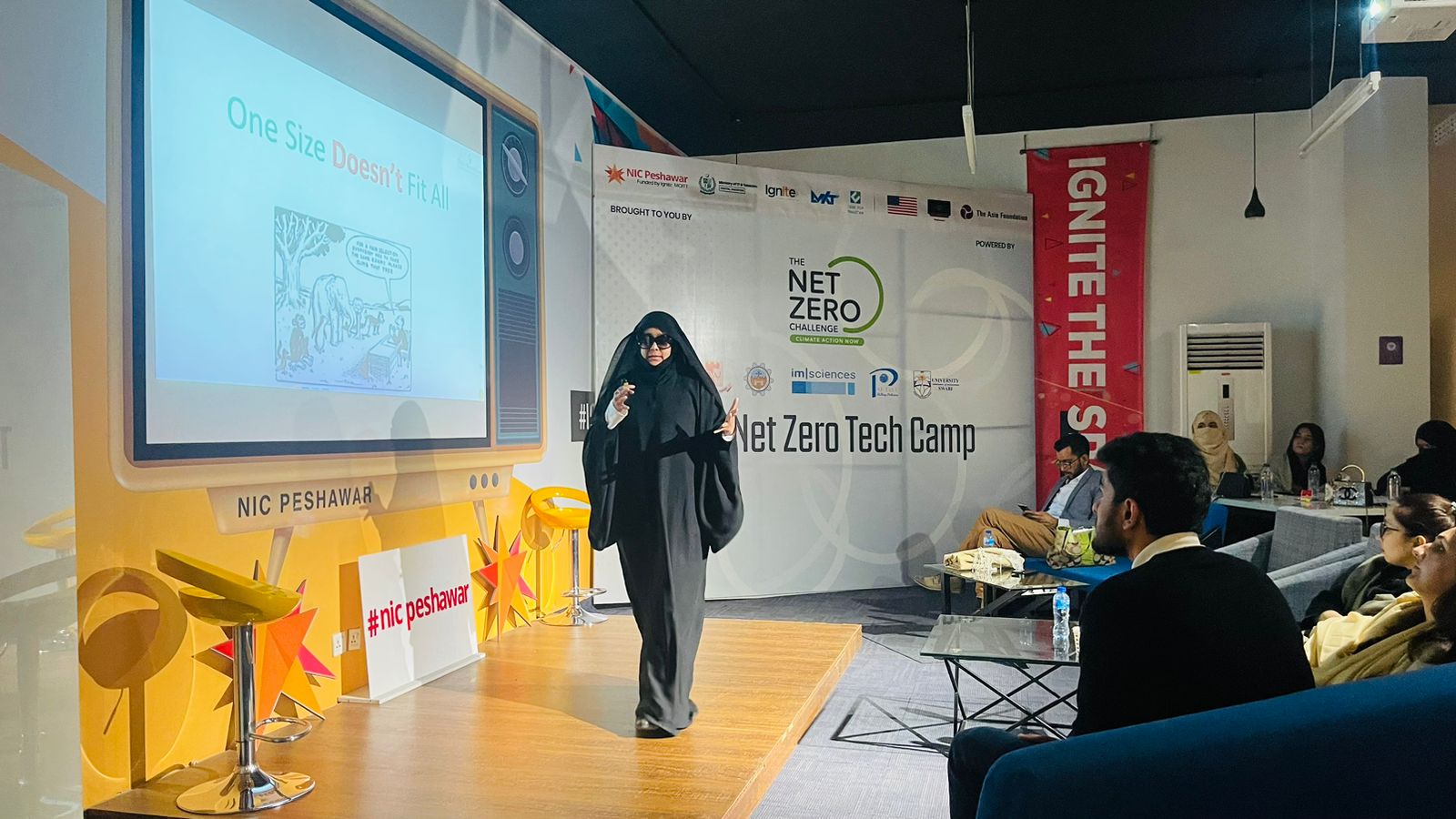
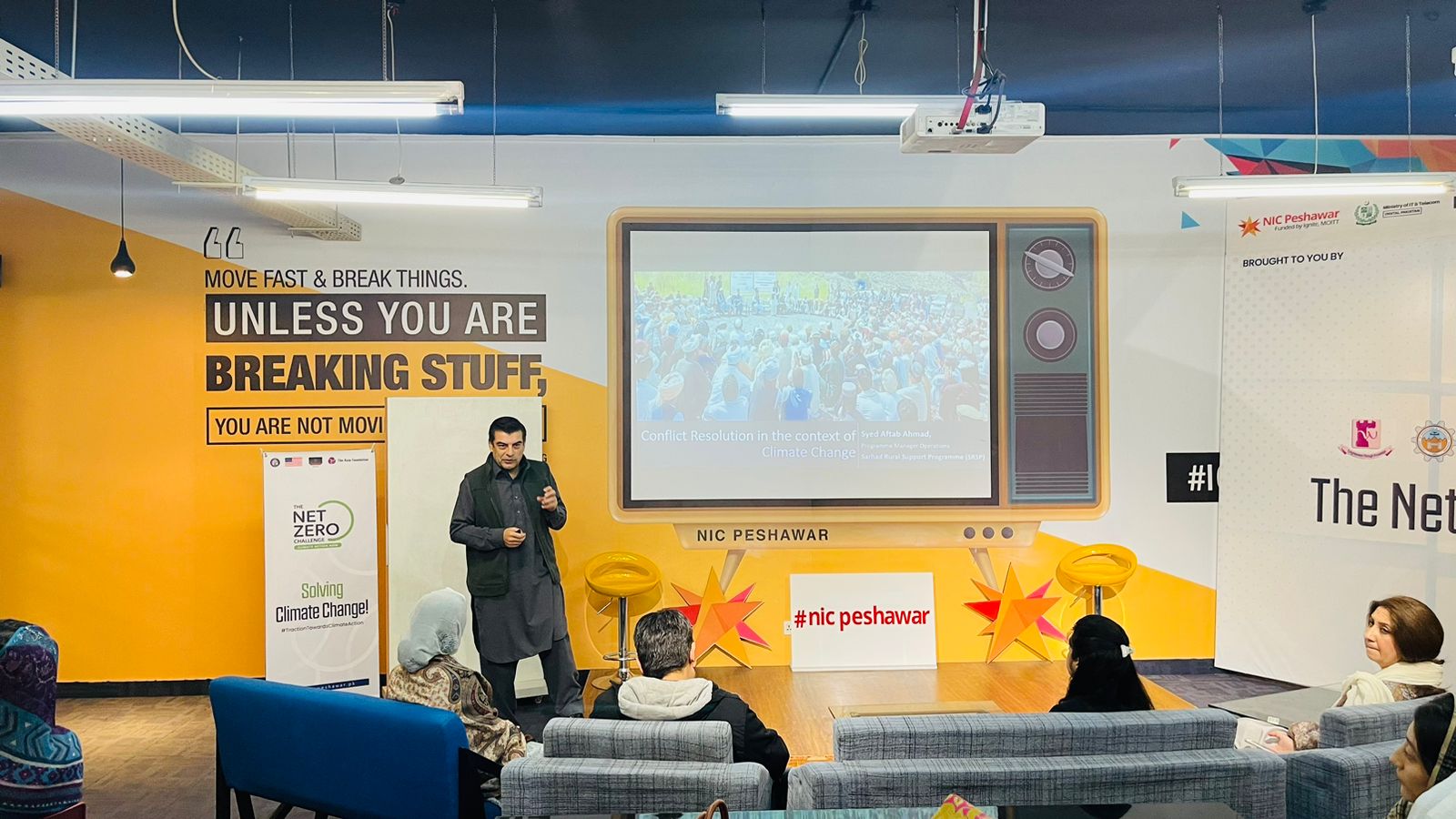
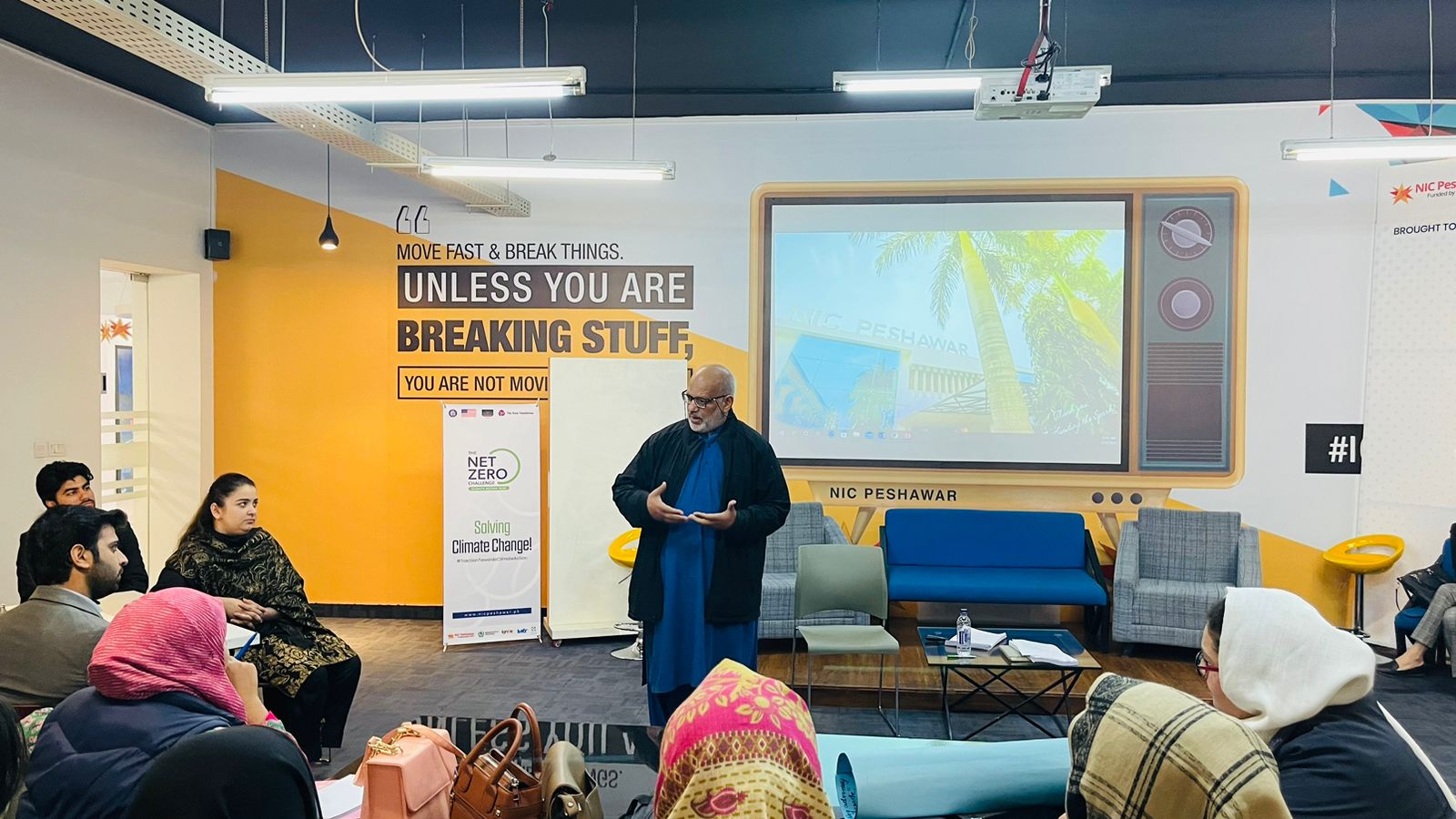
Amongst the myriad proposals, there was one team whose passion for the challenge was palpable. Anfal, Tameem, Sami, Waliya, and Saif are students at UET Peshawar, and they wanted to make a positive impact on the environment. They had each applied to the Net Zero Tech Camp with their own concept of how they would make this impact. During the early stages, when teams were being selected based on their proposed ideas, they had all joined the challenge in different groups but ended up uniting after a mutual interest was discovered in a particular proposal.
When the challenge kicked finally off, they ideated, going back and forth with different project proposals. One of the proposals laid out in the beginning was by Waliya, who came from a computer sciences background, and suggested doing something to tackle e-waste. All four - Anfal, Tameem, Sami and Waliya were on board with this suggestion until they were connected with a fifth member- Saif, who joined their zealous team and changed the course of their plans with an even more impactful proposition. Saif, an ambitious, bright student, came into the challenge with a very specific solution that he had polished to the T in his mind. He happened to be a big fan of Shark Tank, and was inspired by one of the show's episodes to come up with greener blocks. He introduced the concept of Green Blocks to his team, an idea that would eventually become the centerpiece of their project. Green Blocks would be fossil fuels made from waste materials that would result in more environmentally friendly emissions and help achieve net zero. At the outset, the proposal did not seem as revolutionary as its competitors in the challenge. But it was the complete, all-encompassing nature of this project that gave it solid ground and made one realize its significance.
The team's innovative project demonstrated the potential to reduce pollution by a significant degree and profound standards thereby making an impact on the environment. The well-thought-out and thoroughly researched product idea is what led the five of them to join hands with Saif and became known as one team- "Team Green Block."
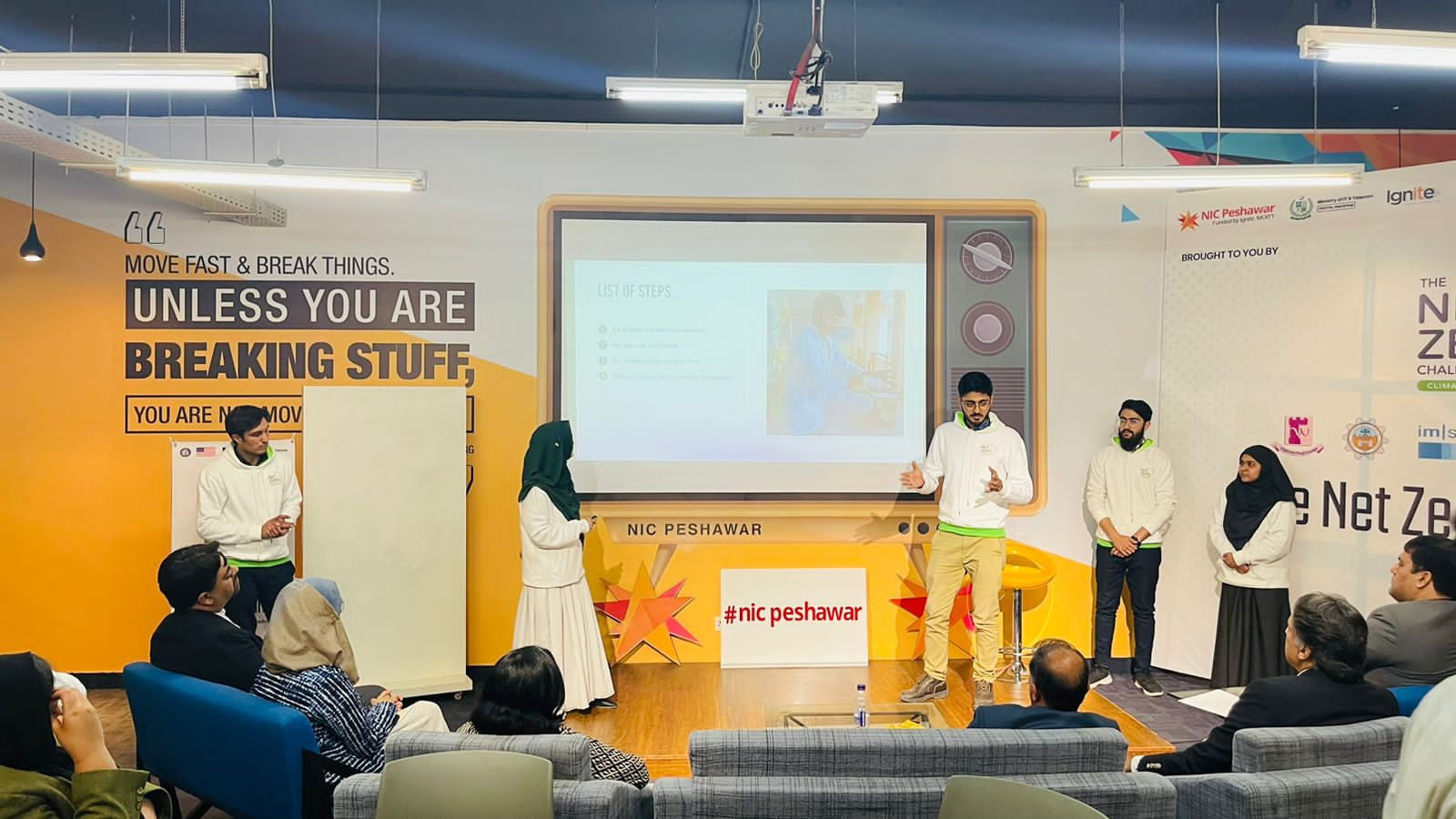
Team Green Block's entire business canvas expressed their genuine concern for, and clear understanding of the subject. Saif shared his Shark Tank inspiration with the others and they began fleshing that example out and translating it into the Pakistani context. When speaking to them about their project and its potential, it was clear how the young boys and girls had taken inspiration from their personal experiences and backgrounds to devise their project ideation. Sami spoke about how these green blocks would be great for the households in his hometown, in the mountains of Swat where many people struggle with fuels. In many rural areas, it is common to use cakes made of cow dung which, although low cost and inherently organic, nevertheless result in dangerous emissions when burnt. Waliya and Anfal explained how they had modified the physical characteristics of these blocks so that people in both rural areas and the cities could easily use them.
It was heartwarming to witness the high level of awareness of and dedication to climate action that team Green Blocks and other pupils displayed. It is a testament to the impact that community-centered events like the Net Zero Tech Camp can have on fostering innovation and driving positive change in our society. Many might even find it praiseworthy that the youth of Pakistan are so passionate and motivated to do something about crises like climate change, which has long plagued our nation. In recent years, Pakistan has suffered the catastrophic consequences of climate change despite contributing less than 1% to the global carbon footprint. Natural disasters such as earthquakes and the 2022 floods have made it impossible to ignore the need for more environmentally-friendly practices. The damage and devastation caused by these calamities are still visible throughout the country.
For me, the outstanding part of team Green Blocks' progress over the course of this challenge was the initiative that they took. Their attitude during this challenge was one of ownership and commitment to bringing about change and finding ways to turn it into reality.
It is this willingness to take initiative that underpins the concept of civic technology – a mindset that we at Code for Pakistan are working to propel across the country. We can all make a meaningful difference in our own way. It all starts with one step forward and thinking outside the box.
If you would like to learn more about how Code for Pakistan has been working with the community to improve the lives of citizens through technology, check out our blog here. Follow us on social media to stay updated with our newest projects.